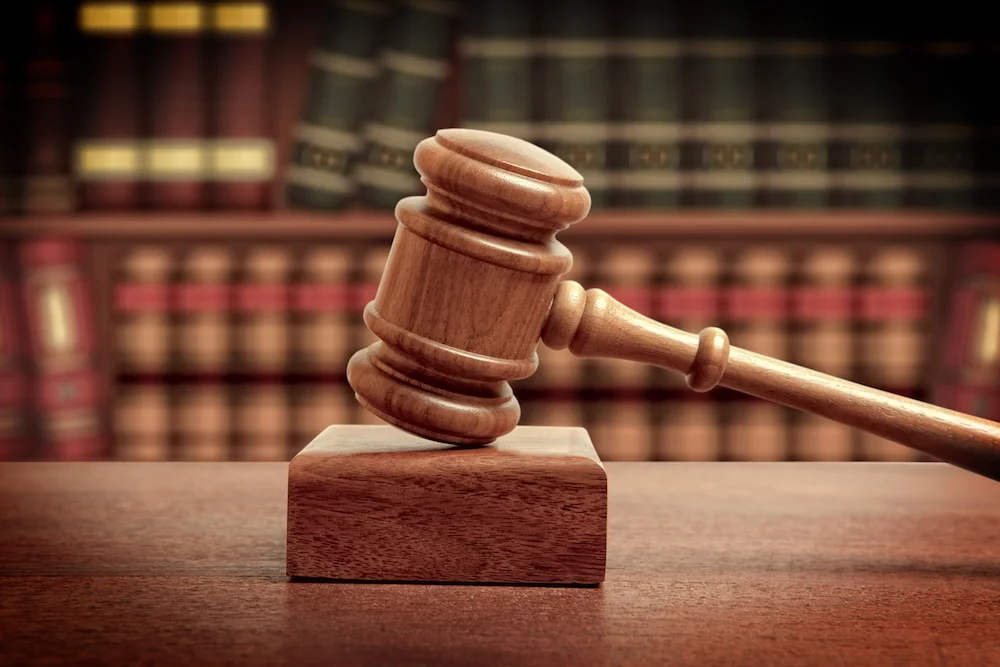PHILADELPHIA – An appellate judge says the plaintiff of record in a qui tam action cannot be granted access to stenographic court records which he says do not exist.
On Nov. 29, U.S. Court of Appeals for the Third Circuit Judge Richard L. Nygaard ruled plaintiff Robert P. Bauchwitz would not be given access to court records he sought from a hearing more than a decade ago, namely because his request pertains to a “non-existent stenographic record.”
In June of 2004, Bauchwitz, filed a qui tam action against William K. Holloman, Cornell University Medical College, Eric B. Kmiec, and Thomas Jefferson University. In that case, Bauchwitz claimed scientists at two university medical schools lied about the results of their DNA research when they applied for National Institutes of Health research grants.
The instant appeal is connected to a “show cause” hearing that took place on Oct. 17, 2005 and concerned plaintiff’s counsel’s request to withdraw representation.
“Although this hearing was entered on the docket, no transcript was ever produced nor does it appear from the docket that one was ever contemporaneously requested. In December of 2009, the District Court granted summary judgment to Thomas Jefferson University and Dr. Kmiec, but denied the same to Cornell University Medical College and Dr. Holloman,” Nygaard said.
In April of 2010, the District Court dismissed the remaining case with prejudice by stipulated order. According to Court records, no appeal resulted from that final case dismissal.
The plaintiff alleges he sought to obtain a transcript of the show cause hearing through contact with the District Court Clerk’s Office, but that same office informed plaintiff in September 2012 of “an equipment malfunction” and that “there were no court reporters notes available from the hearing.”
In response, the plaintiff then filed a motion requesting access to the court reporter’s original stenographic record and/or recordings of the Oct. 17, 2005 hearing. The District Court then held a hearing on that request, which was denied a few months later. Plaintiff appealed the denial of that same motion.
“On appeal, plaintiff contends that he has a First Amendment right of access to a transcript of the hearing and, if the Court cannot provide that, this right of access extends to any ‘storage media’ on which the hearing record may be stored. Accordingly, plaintiff argues that he should be permitted to have a forensic expert investigate any such media that is in the Clerk’s office possession in order to attempt to extract the lost data and recreate the hearing transcript,” Nygaard said.
When it denied relief in this matter, the District Court stated “there is no storage medium that can be used to create a transcript of the hearing,” and it could not provide plaintiff with something that does not exist, since the District Court determined that the notes and hearing testimony were never transcribed.
“The scant record on appeal likewise provides us no basis to grant relief. Eleven years has passed since the hearing date; six years have passed since the case was dismissed with prejudice; the court reporter has long since retired; and the stenographic equipment no longer functions. Thus, the District Court’s determination that the information plaintiff seeks does not exist is credible,” Nygaard said.
“And even if plaintiff’s First Amendment right of access to judicial documents extended to the storage media he seeks, he has no right of access to storage equipment that is not within the court’s files,” Nygaard said. “Therefore, the District Court did not err by denying the plaintiff’s request for access to a non-existent stenographic record, and we will affirm.”
The plaintiff is represented by Gerald B. Sullivan and Margaret L. Hutchinson of the U.S. Attorney’s Office and Virginia A. Gibson of Hogan Lovells, all in Philadelphia, plus Matthew L. Owens of Owens Barcavage & McInroy in Harrisburg and David L. Finger of Finger & Slanina in Wilmington, Del.
The defendants are represented by Ronald A. Sarachan, Diana L. Spagnuolo and John C. Grugan of Ballard Spahr, in Philadelphia.
U.S. Court of Appeals for the Third Circuit case 16-1669
U.S. District Court for the Eastern District of Pennsylvania case 2:04-cv-02892
From the Pennsylvania Record: Reach Courts Reporter Nicholas Malfitano at nickpennrecord@gmail.com
